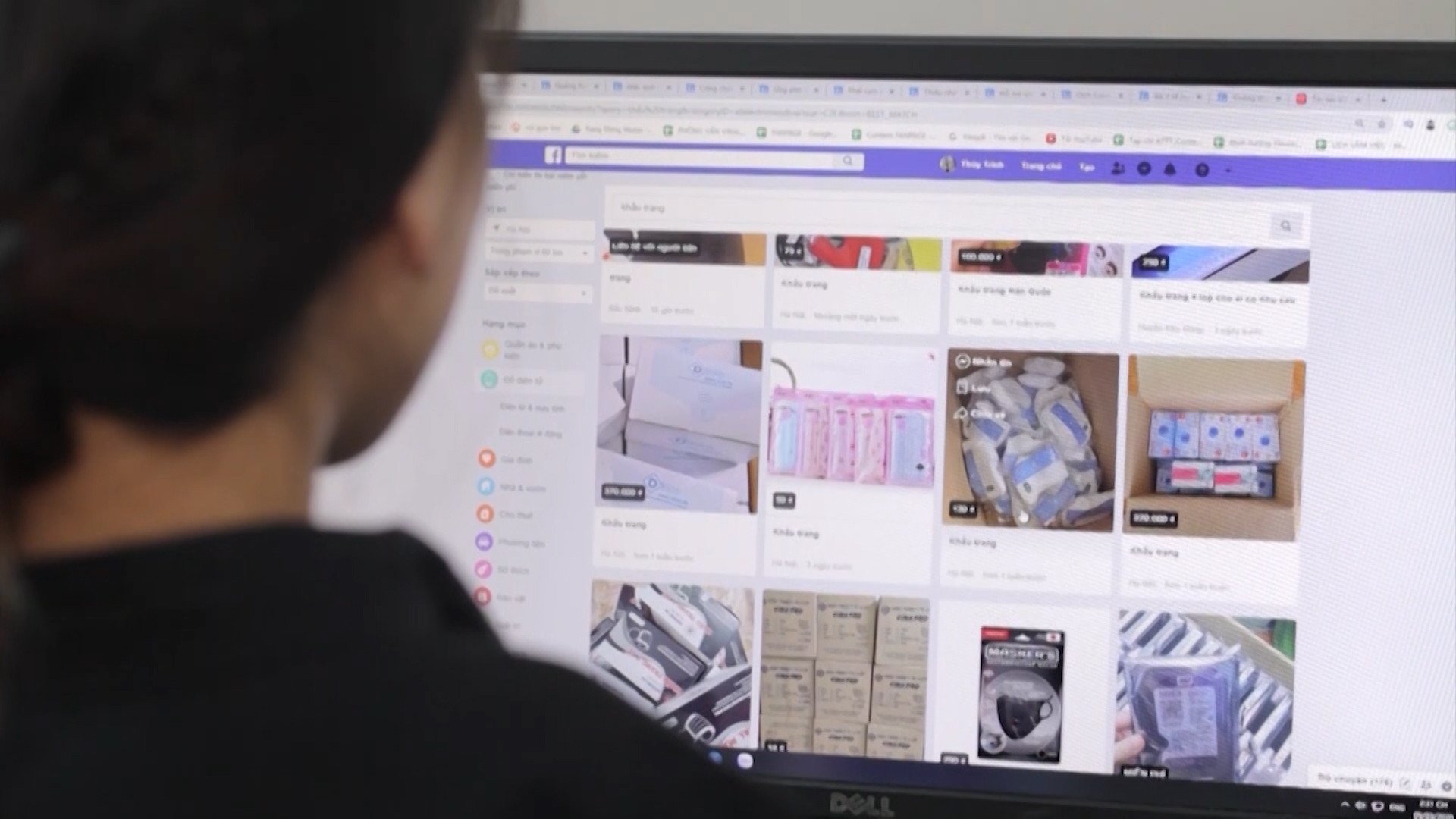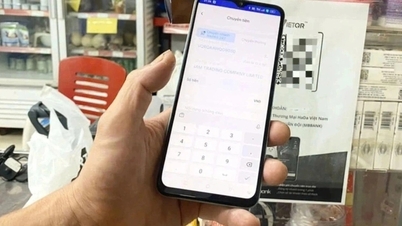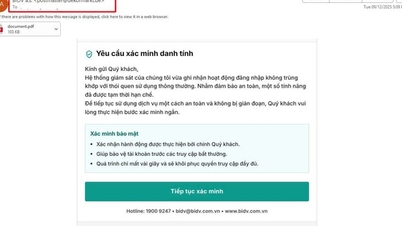According to a representative from the General Department of Taxation's media department, all activities on social media leave a trace, and the tax authorities have solutions to monitor and handle any tax violations that may occur when selling goods online.
Online business owners on Facebook are sharing a tax evasion scheme. According to this scheme, when paying for goods and services via bank transfer, absolutely no details such as: purchase, payment for goods, invoice payment, deposit, money transfer, debt settlement should be included in the transaction details. Simply write the customer's name or customer code.
Customers who include the recommended information will have to pay an additional 10% tax.
The reason, according to information shared by online business owners, is: "From January 1, 2025, the tax authorities will have access to all personal accounts to collect e-commerce taxes. Transactions marked 'buy', 'sell', etc., will be taxed at a rate of 10% of the transferred amount and paid into the state budget."

On the evening of January 10th, in an exclusive interview with VietNamNet newspaper regarding solutions to control tax evasion through the aforementioned "tricks," a representative from the General Department of Taxation's media department affirmed: "All business activities on social media leave traces, and the tax authorities have solutions to monitor and handle violations because tax management is now based on electronic databases. The tax authorities have scanning tools; if an individual/organization's Facebook account intentionally evades taxes, they will be processed according to the law upon detection."
Most recently, in November 2024, there was a case of criminal prosecution against an individual for tax evasion in e-commerce in Hanoi .
According to VietNamNet 's investigation, recently, the tax authorities have been actively coordinating with e-commerce platforms and relevant state management agencies to clean up the large database of taxpayers engaged in e-commerce business.
The General Department of Taxation is accelerating the deployment of AI (artificial intelligence) applications to process big data and provide warnings about potential tax risks.
In addition, the tax authorities will coordinate with commercial banks to collect information including: transaction data from accounts of domestic organizations and individuals with foreign online service providers (such as Google, Facebook, YouTube, Netflix, etc.); personal information, content, and transaction amounts of individual accounts showing signs of e-commerce business activity.
Simultaneously, coordination with ministries and agencies is underway to share and connect data for tax management related to e-commerce activities. Specifically, the Ministry of Public Security will review and standardize the national population database with the tax identification number database. The Ministry of Industry and Trade will connect data on e-commerce platforms. The Ministry of Information and Communications will share data on organizations and individuals operating in the telecommunications, advertising, and broadcasting sectors. The State Bank of Vietnam will provide information on payment accounts and cash flow.
The tax authorities do not access personal accounts to collect e-commerce taxes.
In a press release sent to media outlets on the evening of January 10th, the General Department of Taxation affirmed that the information stating "tax authorities have the right to access all personal accounts from January 1st, 2025, to collect taxes on e-commerce" is inaccurate. According to tax laws, tax authorities do not perform this function.
According to the Law on Tax Administration and Decree 126/2020/ND-CP, tax authorities have the right to request relevant agencies and organizations, including e-commerce platforms, commercial banks, and transportation companies, to provide relevant information for the purpose of inspection, verification, determining the tax obligations of taxpayers, and implementing coercive measures to enforce administrative decisions on tax management as prescribed by tax law.
Based on information gathered from various sources, the tax authorities review and cross-check taxpayer information to identify those who have failed to declare and pay taxes, or have declared incomplete tax payments, and take action to collect back taxes and impose penalties as prescribed. If tax evasion is determined, the tax authorities will transfer the case to the police for legal processing.
According to current tax regulations, individuals engaged in business activities who generate revenue exceeding 100 million VND per year are subject to Value Added Tax (VAT) and Personal Income Tax (PIT).
Accordingly, individuals selling goods online pay personal income tax at a rate of 0.5% and value-added tax at a rate of 1%; individuals with income from advertising on digital information products, services, and other services pay personal income tax at a rate of 2% and value-added tax at a rate of 5%...
From December 19, 2024, the tax authorities officially launched the "Electronic portal for households and individuals conducting business to register, declare, and pay taxes from e-commerce and digital platform businesses".
According to Law No. 56/2024/QH15, from April 1, 2025, managers of e-commerce platforms and digital platforms (including domestic and foreign organizations) are responsible for deducting, paying taxes on behalf of, and declaring the deducted taxes on behalf of households and individuals engaged in e-commerce business.
With this regulation, a single e-commerce platform can deduct, pay, and declare the deducted taxes on behalf of hundreds of thousands of individuals.
Source: https://vietnamnet.vn/khong-ghi-mua-ban-khi-chuyen-khoan-ban-hang-online-lieu-co-tron-duoc-thue-2362184.html















































































































Comment (0)